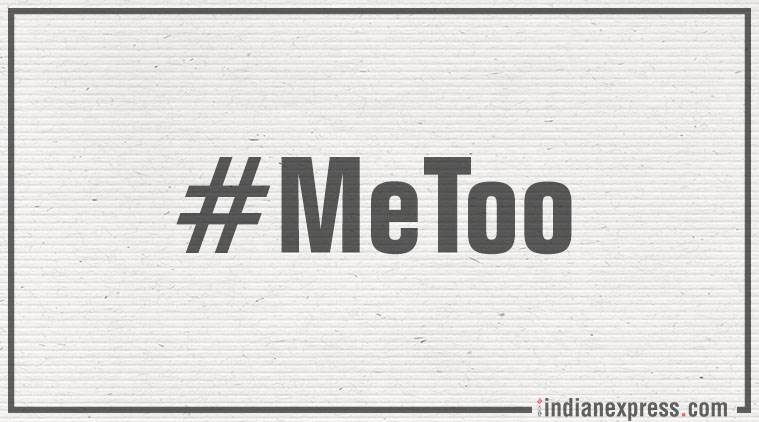The right identity
Evolving feminist narratives in India must resolve the fault lines that have emerged.

The older generation of feminists have been, of late, attacked multiple times for how they have conducted the feminist movement so far.
A spectre is haunting Indian men, but also the feminist movement. For the latter, it is the spectre of an identity movement. As a moment of catharsis, following a long overdue battle for many women who probably belong to the “nevertheless, she persisted (think Mitch McConnell on Elizabeth Warren)” generation, has come #MeToo. Many of us who nominally belong to the millennial community have watched as our younger sisters have gone about dismantling the apparatus that allows masculine aggression and violence to persist. Empowered to finally inhabit a world that listens in solidarity, many older women have come out to expose their aggressors for the first time or repeat an allegation they had made earlier in a tone-deaf world.
So, what will we be left with, to ask a Gramscian question, when the old world is dead and the new has not been born yet? The feminist movement finds itself in the midst of a generational conflict of early feminist pioneers, veterans of many battles and millennials without patience. The latter “will not be silenced” by those who speak of due process and caution, we are told. As Major Saranoff in George Bernard Shaw’s Arms and the Man rued, the generals would not have it that we win a war on a flawed strategy when we could be losing it on account of best practices. Saranoff had led a cavalry directly towards a battalion armed with cannons, but had triumphed because the other side did not have the right ammunition at the right time.
The older generation of feminists have been, of late, attacked multiple times for how they have conducted the feminist movement so far. World over, feminists have been equated to a sex-negative, reactionary group which is also, it is alleged, intolerant of diversity — sexual, racial and ethnic. In the United States, feminists have allegedly treated LGBTQ movements shabbily and, in India, all feminists are labelled savarna, elitist women (even by savarna, elitist people). In both cases, feminists are viewed as a faceless mass of undifferentiated women. They are not individuals who agree on some issues and diverge on others.
LGBTQ groups were perhaps one of the latest entrants to identity movements at the turn of the century. Today, the term identity politics might have negative connotations but these were powerful movements that promoted cohesion to protect group interests, often with aggressive political posturing. Adages such as TERF (Trans Exclusionary Radical Feminist), seek to delink group rights from the larger feminist movement, and have, probably, helped the cause in some ways. Ironically, I have heard patriarchal white men use TERF more often to discredit individual feminists than any other group.
Identity movements that depend on labelling and discrediting have today reached groups who are not only privileged but also outraged at the gains made by marginalised communities. White nationalists and Hindu nationalists, especially men but also women, combine the aggressive political posturing, moves for cohesion and for insulating groups with the power of the state and the social structures they control.
The #MeToo explosion is born out of this moment. Of the need to push back against an insulating identity movement that seeks to include women without representing women’s interests, or even holding its men accountable for the violence unleashed against those they seek to speak for. Racial, ethnic, caste and LGBTQ movements have done this before — distanced themselves from both the dominant community and feminist women from dominant groups. The #MeToo movement in India is similarly consolidating itself as an identity movement. The Raya Sarkar list was posited, quite misleadingly, as an attack against savarna men and against “savarna feminist apologists”. The #MeToo of 2018 is unapologetically against men, male entitlement and male inability to accord respect to women. Any criticism of #MeToo will be countered with the same posturing and aggression needed to promote group interests of a set of people who subscribe to one tenuous identity — of being women.
The feminist movement in India, after years of vibrant diffusion, is consolidating into an identity movement whether we like it or not, and the fault lines are already visible. Tavleen Singh has questioned the exclusion of marginalised women from the #MeToo space (‘Can MeToo get beyond me’, IE, October 21) while Seema Mustafa has dismissed both Ghazala Wahab’s testimony, in which she was mentioned, and the #MeToo movement itself as a self-indulgent exercise. Embedded in Mustafa’s piece (‘The revolution before #MeToo’, IE October 25) is a derision for millennials with a short “attention span” and for women’s vulnerability (which locates responsibility of escaping harassment on women themselves). This piece also reveals that the author has perhaps missed the entire feminist conversation on the “crisis of representation”. The conceit of speaking for others (those without privilege) and the impatient dismissal of women who take charge of their own narrative is also a function of power, lacking in empathy.
An important question that Mustafa also touches on needs to be pushed forward: Is there no redemption (if explicitly sought) possible for men accused of less severe indiscretions? Also, have we lost our ability to at least listen to someone like Varun Grover who presented his case with precision and pathos (when the response of the person who posted his accusation has been vacuous)? Or, finally, what does one make of the pressure we put on women, especially feminists, to immediately condemn their family members and husbands/partners? Empathy, for me, has always been the cornerstone of feminism and I do not want to see it die with the old world.
The writer is an anthropologist based in Germany







































No hay comentarios:
Publicar un comentario